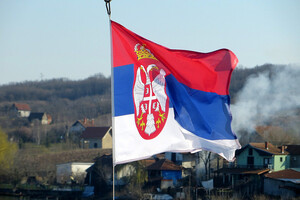Europe fears new conflict in Balkans.

China shipped to Serbia anti-aircraft missile systems HQ-22 class “ground – air”, according to the Associated Press, citing military experts and the media. Chinese cargo planes with military markings were recorded at Belgrade airport.
“Six Chinese Y-20 transport planes landed at Belgrade's civilian airport on Saturday morning, reportedly carrying HQ-22 anti-aircraft missile systems for Serbian troops. “, – the publication writes.
Subsequently, Serbian President Aleksandar Vucic almost confirmed the delivery of the medium-range system, which was agreed in 2019, saying on Saturday that he would present the “latest pride” of the Serbian military on Tuesday or Wednesday.
Earlier, he complained that NATO countries, which make up most of Serbia's neighbors, are refusing to allow flights over their territories due to tensions over the war in Ukraine.
At the same time, at least two NATO members, Turkey and Bulgaria, have been concerned about arms supplies to Serbia.
Despite Serbia's support for a UN resolution condemning Russia's bloody actions in Ukraine, it has refused to join. to international sanctions against the Kremlin and does not openly criticize its longtime ally.
China's missile system is often compared to the US Patriot system and Russia's S-300 SAM, although it has a shorter range. Serbia will become the first Chinese missile operator in Europe.
Back in 2020, the United States warned Belgrade against purchasing HQ-22 anti-aircraft systems, the export version of which is known as FK-3. They said that if Serbia really wants to join the European Union and other Western alliances, it must bring its military equipment up to Western standards. However, the country continues to equip its armed forces with Russian and Chinese weapons, including military ones. planes, battle tanks and other equipment.
There are fears in the West that arming Serbia and Russia with China could push the Balkan country into another war, especially against its former province of Kosovo, which declared independence in 2008.
Serbia is known for its pro-Russian sentiments and in principle does not join the sanctions against Russia. But will these sentiments change after the general election, which was won by incumbent President Aleksandar Vucic and his party? Read about it in the article Volodymyr Tsybulnyk “Between Russia and the European Union: Two Chairs for Serbia”.




